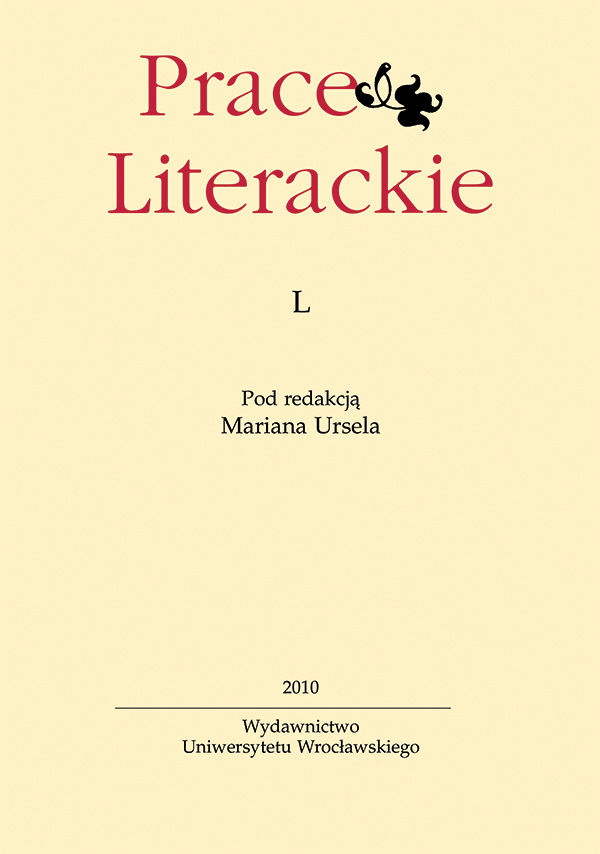

Artykuły

In search of the generic identity of the poetic novel. An outline of problems
The article is an attempt to define the generic framework of the Polish poetic novel. The major problem, when talking about genology, is the loose and associational structure of many Romantic genres poetic novel, Romantic drama, Romantic poem and many other types of lyric verse which freely combines many generic features. Even though it is possible to distinguish fairly stable elements of the poetic novel the main protagonist, i.e. the Byronic hero, the background and the multiple narration, Polish adaptors of the genre left themselves a substantial margin of freedom. When the Byronic model of the genre was being creatively adopted from the mid-1820s to the early 1830s, there emerged elegiac novels Maria by A. Malczewski, An Hour of Thought by J. Słowacki, dramatic novels Konrad Wallenrod by A. Mickiewicz, The Kaniów Castle by S. Goszczyński or various mutations of the genre e.g. strongly dramatized The Story of Wacław by S. Garczyński. The author disagrees with those that negate the autonomy of the genre and present it as a multigenre hybrid. She argues that such a view is wrong, if we look at Romantic thinkers themselves, who saw the poetic novel as a new literary quality and as a different way of understanding the genre. The search for the generic identity of the poetic novel thus leads to a change in the research perspective. It forces us to notice its dynamic structure which is always in the process of changing its identity. The loose, associational generic formula reflects a creative awareness and an active, experimental attitude towards the world.